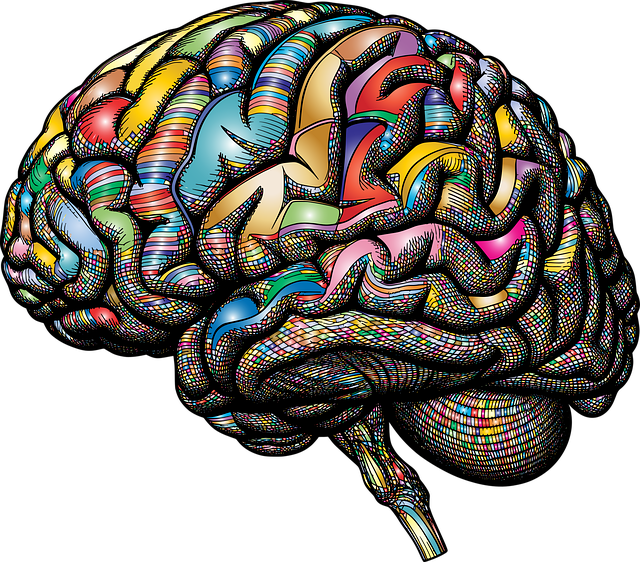Emotional Intelligence (EI) is a powerful tool for enhancing adult well-being, especially in managing challenging life events like grief. Therapy for adults, including grief counseling, emphasizes EI's role in coping mechanisms and healing processes. Through identifying and managing emotions, individuals can reduce stigma, improve communication skills, build resilience, and lead more fulfilling lives. Effective grief counseling provides a safe space to explore emotions, enabling healthy coping strategies; it also enhances communication through open dialogue and non-verbal cue recognition. Building resilience and empathy through techniques like mental wellness journaling and crisis intervention further develops EI, empowering adults to navigate life's complexities with greater resilience and deeper connections.
Emotional intelligence (EI) is a powerful tool for navigating life’s challenges, fostering meaningful connections, and cultivating overall wellbeing. This article explores the multifaceted aspects of EI, focusing on its profound impact on adult mental health. We delve into effective strategies for identifying and managing emotions, drawing insights from grief counseling techniques. Additionally, it examines communication methods that enhance EI and delves into therapeutic approaches designed to build resilience and empathy in adults, offering valuable tools for personal growth.
- Understanding Emotional Intelligence and its Impact on Adult Wellbeing
- Identifying and Managing Emotions: A Cornerstone of Grief Counseling
- Effective Communication Strategies for Enhancing Emotional Intelligence
- Building Resilience and Empathy: Therapeutic Approaches for Adults
Understanding Emotional Intelligence and its Impact on Adult Wellbeing

Emotional Intelligence (EI) is a powerful tool for enhancing adult wellbeing and overall mental health. It refers to an individual’s ability to recognize, understand, and manage their own emotions, as well as empathize with and influence the emotions of others. This skill set goes beyond mere emotional awareness; it involves using this understanding to navigate social situations effectively and foster positive relationships.
The impact of EI on adult wellbeing is profound, especially when considering its role in managing challenging life events such as grief. Therapy for Adults, including grief counseling, often emphasizes the importance of emotional intelligence in coping mechanisms and healing processes. By developing EI, individuals can reduce the stigma associated with mental illness, improve their communication skills, and build resilience in navigating life’s ups and downs. This, in turn, contributes to improved mental wellness, enabling folks to lead more fulfilling lives.
Identifying and Managing Emotions: A Cornerstone of Grief Counseling

Identifying and managing emotions is a cornerstone of grief counseling. It’s not just about acknowledging feelings; it involves understanding their source, intensity, and impact. Through effective therapy for adults, individuals learn to differentiate between emotional responses and reactive behaviors. This process empowers them to manage intense emotions, such as grief, without being overwhelmed.
In the context of both personal growth and professional well-being—particularly relevant for healthcare providers dealing with high-stress situations—developing coping skills is crucial. Grief counseling provides a safe space to explore these emotions, fostering resilience and preventing burnout. By learning to process and regulate feelings, individuals can enhance their emotional intelligence, improve relationships, and find healthy ways to cope with life’s challenges, including the profound loss of grief.
Effective Communication Strategies for Enhancing Emotional Intelligence

Effective communication is a cornerstone of emotional intelligence, allowing individuals to express their feelings and understand others’ perspectives. Therapy for adults can play a significant role in honing these skills, particularly through grief counseling, which encourages open dialogue about emotions. By creating safe spaces for vulnerable conversations, therapy fosters empathy and active listening—key components of emotional intelligence.
In the context of building resilience and managing stress, organizations increasingly offer workshops focused on communication strategies. These sessions teach participants to recognize non-verbal cues, calibrate their tone, and use “I” statements to convey emotions constructively. Integrating such practices into daily interactions enhances emotional intelligence, leading to better relationships, effective conflict resolution, and improved overall well-being, especially in stressful work environments.
Building Resilience and Empathy: Therapeutic Approaches for Adults

Building resilience and empathy is a crucial aspect of emotional intelligence development, especially for adults navigating life’s challenges. Therapeutic approaches play a pivotal role in empowering individuals to cope with adversity and connect more profoundly with their emotions and others’ feelings. One effective method is grief counseling, which helps adults process complex emotions stemming from loss or traumatic events. This form of therapy provides a safe space to explore and express grief, fostering self-awareness and empathy towards one’s own experiences and those of others.
Through the guidance of mental wellness journaling exercises, individuals can reflect on their emotional journeys, identify coping mechanisms, and develop strategies to build resilience. Crisis intervention techniques, often incorporated into these therapeutic practices, teach adults valuable skills to manage intense emotions during challenging times. Mind over matter principles encourage a shift in perspective, promoting self-compassion and empathy for oneself and others. These approaches collectively contribute to enhanced emotional intelligence, enabling adults to navigate life’s complexities with greater resilience and deeper connections.
Emotional intelligence is a powerful tool for enhancing adult wellbeing. By understanding and managing emotions, effective communication strategies, and building resilience and empathy through therapeutic approaches like grief counseling, adults can navigate life’s challenges more effectively. These strategies not only foster personal growth but also improve relationships and overall mental health, making emotional intelligence a key component of modern therapy for adults.









